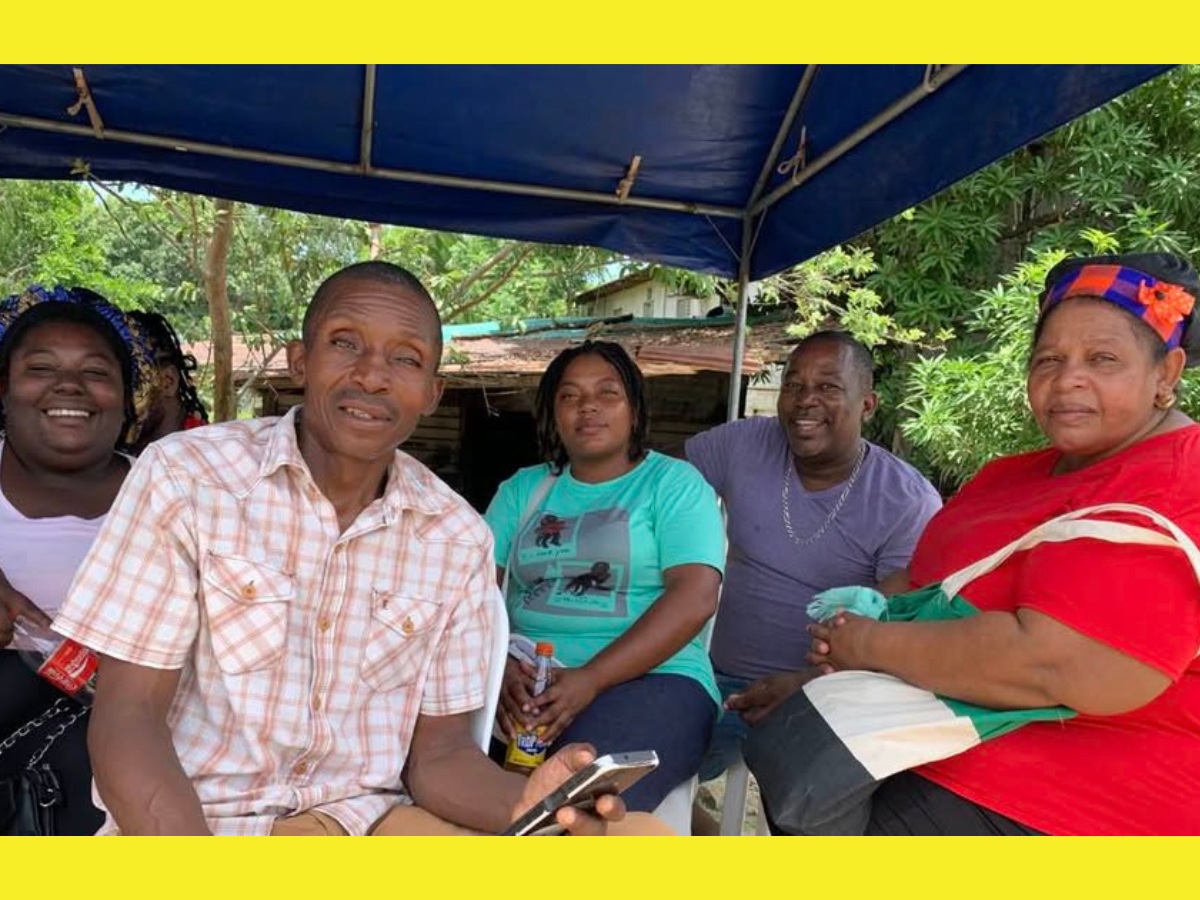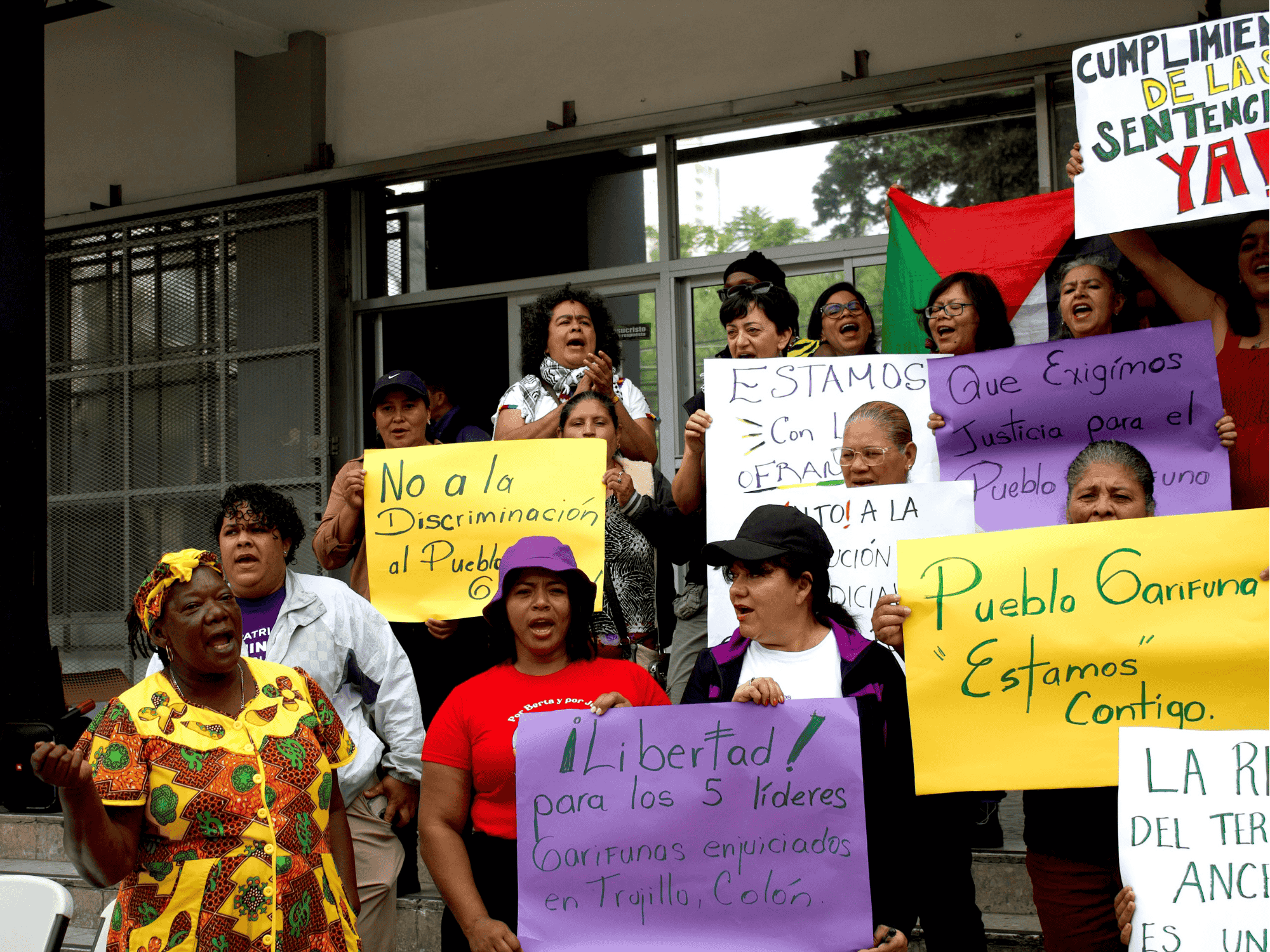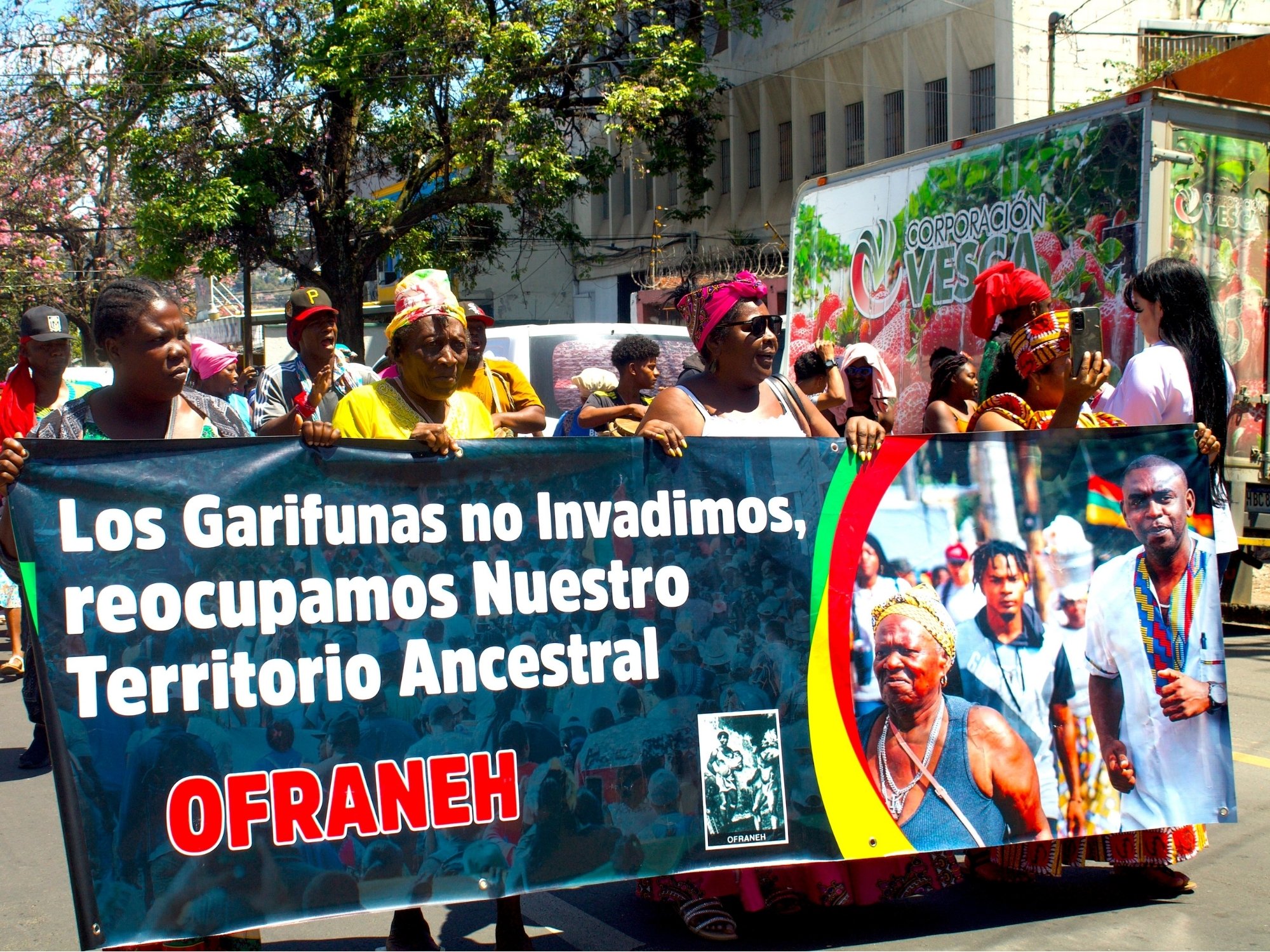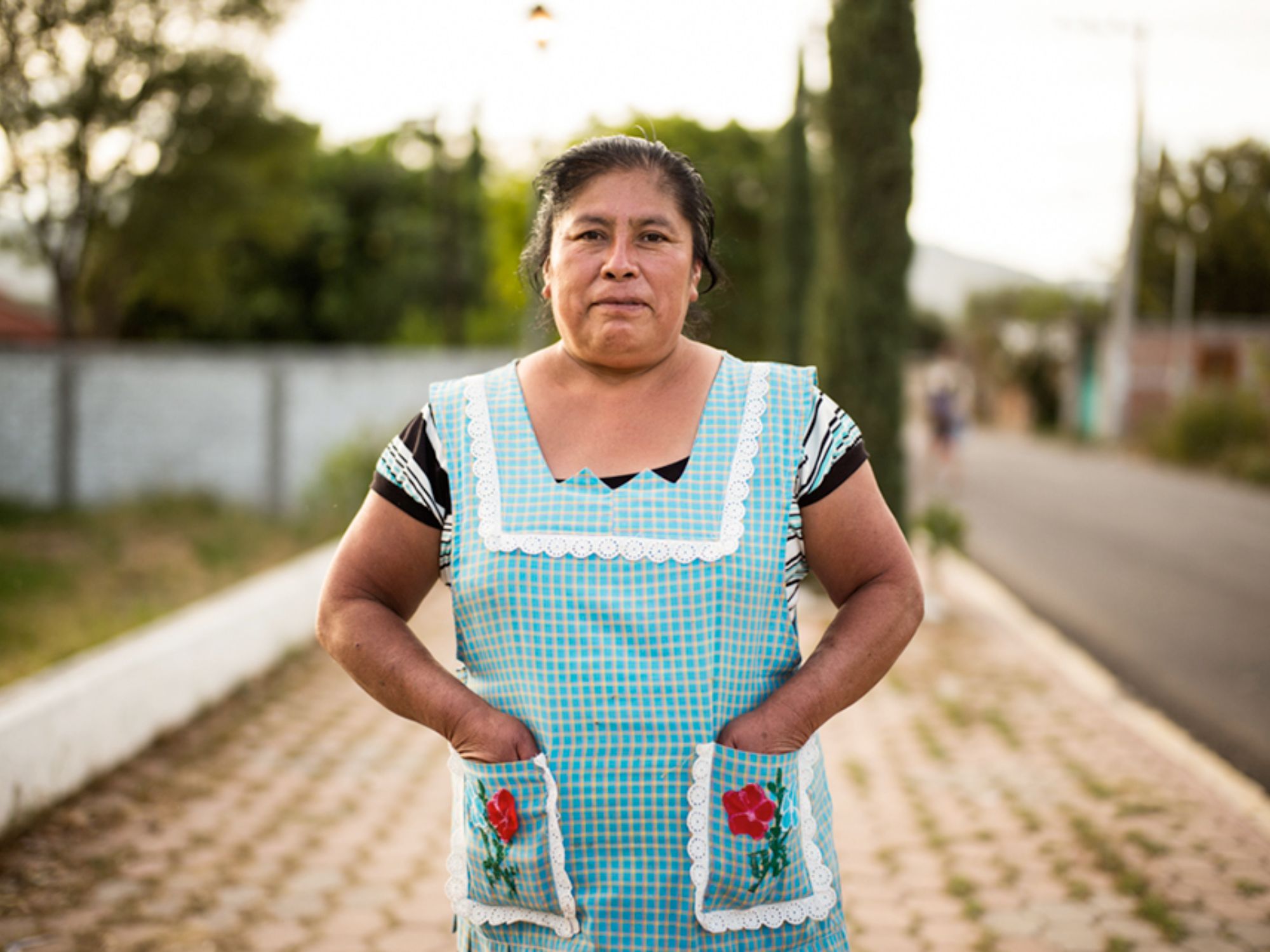The ruling recognized the full innocence of Cesia Noemí Guillén Miguel, César Geovany Bernárdez Herrera, Luis Fernando Calderón, Cindy Margarita Barbareño Fernández, and Gilma Hidel Bernárdez Elis, who had been accused of forced displacement and aggravated usurpation.
The court also declared itself incompetent to continue hearing cases involving ancestral land titles, affirming that such disputes must be resolved by the National Agrarian Institute (INA). According to lawyer Kenia Oliva, legal representative of OFRANEH, the decision is grounded in Inter-American Court of Human Rights jurisprudence, which has established that conflicts over Indigenous and Afro-descendant territories should not be addressed through criminal proceedings, as reported by Criterio.hn on August 19, 2025.
International solidarity at the center
This outcome comes only days after the International Solidarity Visit with the Garífuna People, organized by ESCR-Net from August 10 to 17. A delegation of more than 11 human rights organizations from Latin America, the Caribbean, North America, and Europe visited Garífuna communities, heard testimonies of violence, racism, and dispossession, and presented a list of demands to the Public Prosecutor’s Office of Honduras.
During the visit, the delegation denounced irregularities in the proceedings, as well as racist and corrupt practices in the Trujillo prosecutor’s office, strengthening the call to end the systematic criminalization of Garífuna land and cultural defenders.
A step forward, with vigilance
While this ruling represents a step against criminalization, private accusers may still appeal to the Court of Appeals in La Ceiba. Continued monitoring and national and international pressure will therefore be crucial.
The resilience of the Garífuna people and the power of transnational solidarity made this outcome possible. ESCR-Net reaffirms its commitment to supporting Garífuna communities in their legitimate defense of territory, culture, and life.



